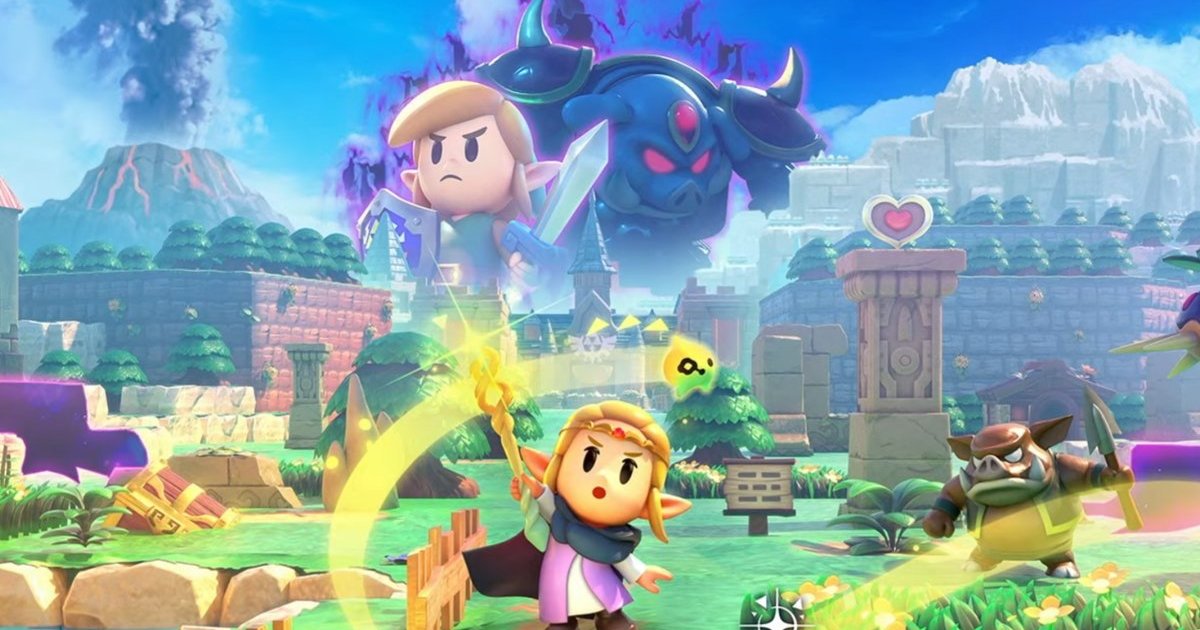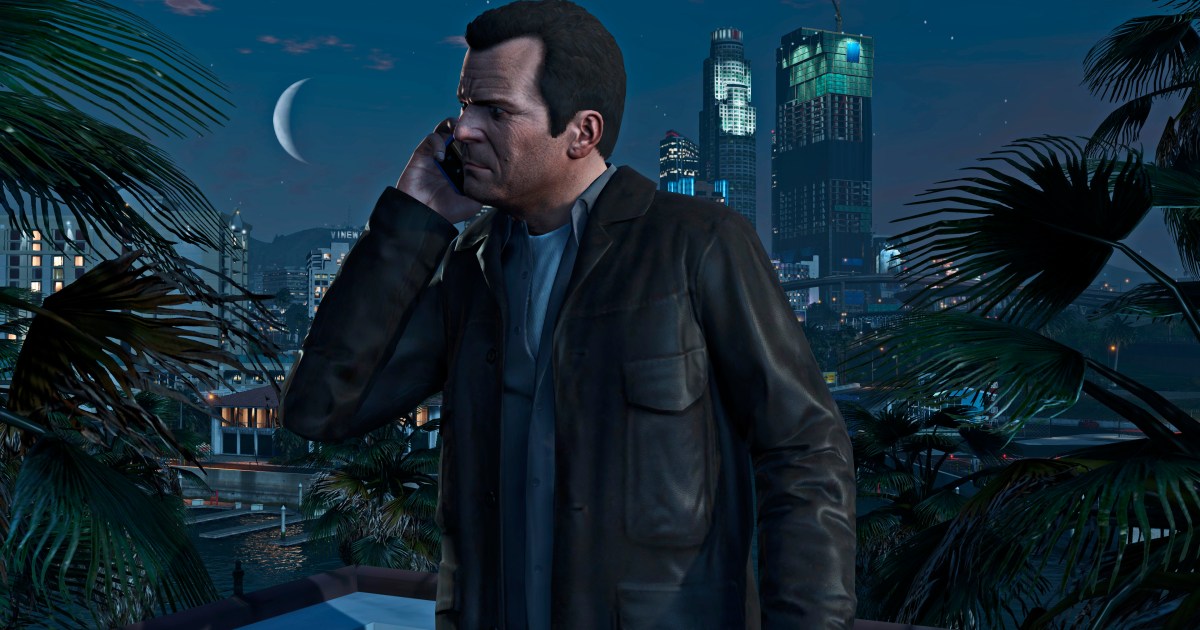
I wish Zelda: Echoes of Wisdom had this hated Breath of the Wild feature

I’ve been having a good time with The Legend of Zelda: Echoes of Wisdom, but a glaring problem has reared its head just a few hours in. The user interface for sorting through Echoes leaves a lot to be desired. By the time I cleared my first few dungeons in Echoes of Wisdom, I already felt overwhelmed by the amount of Echoes available, and I didn’t have adequate ways to sort them. As a result, I’m already finding myself relying on the same couple of Echoes rather than experimenting with each new one I come across.
Echoes of Wisdom is at its best when I can use new Echoes, or a unique combination of them, to solve puzzles or navigate dungeons in clever ways. However, the clumsy UI and overwhelming number of options with Echoes sometimes get in the way of those glorious moments. That has left me yearning for a controversial feature present in both The Legend of Zelda: Breath of the Wild and The Legend of Zelda: Tears of the Kingdom: item degradation.
Weapon durability and degradation in 3D Zelda games
Breath of the Wild might not have featured an Echoes mechanic, but the game was still built around players exploring every inch of Hyrule and adapting to whatever they find. To encourage continued exploration and interaction, Nintendo introduced a weapon degradation mechanic. Common in survival games, this kind of durability mechanic makes tools or weapons break after a certain number of uses.
Nintendo
Its inclusion in Breath of the Wild is still extremely controversial. Many players dislike the fact that their favorite weapons constantly break, forcing them to find something else to use. Its sequel, Tears of the Kingdom, went on to find a clever way to solve for this. Weapon degradation still exists, but players gain the ability to fuse weapons with other items or weapons found around Hyrule. If the sword I like is close to breaking, I can fuse it with something else and create a whole new weapon.
Nintendo cleverly utilizes weapon degradation to guide players in using the Fuse mechanic rather than just encouraging exploration and experimentation as it did in Breath of the Wild. The UI in these latest 3D Zelda games is equally as lackluster as it is in Echoes of Wisdom, but the degradation system meant that UI only becomes a problem later on in the game once I had a full inventory and way too much at my disposal. In Echoes of Wisdom, I hit that point much earlier.
How that could work in Echoes of Wisdom
Echoes of Wisdom features over 125 Echoes, but there’s no great way to sort them. By default, the Echoes menu is set to “last used,” with other options being “most used,” “last learned,” “cost,” and “type.” All of these are imperfect ways of sorting Echoes. Yes, last used and most used tend to have frequently helpful Echoes for me because it gets me caught up in using the same Echoes, like the bed and Gibdo, over and over again. No matter the category, Echoes are also presented in the menu one at a time, making it a chore to find one not surfaced prominently by any of those menu-sorting options.
Echoes of Wisdom clearly wants players to continually experiment with the Echoes they find, and the game is at its best when I’m doing just that. Unfortunately, the Echoes UI gets in the way of itself. A short-term fix could be to add a “favorites” menu to for Echoes, but that would also dispel the urge to experiment with new Echoes frequently. Perhaps Echoes of Wisdom would’ve been better served had the Echoes had some sort of degradation system that made them disappear from the menu after a couple of uses.
Nintendo
It may sound blasphemous, but I think Echoes of Wisdom could have been even more engaging if Echoes disappeared from my inventory after several uses, like weapons do in Breath of the Wild. That would force me to adapt to whatever new Echoes were in every new area I came across and ensure I wasn’t relying on the same few to solve every puzzle. Yes, it might be a bummer to lose a useful Echo in a pivotal moment had Nintendo and developer Grezzo implemented such a system, but the current Echoes UI is even more frustrating. Having to think on my feet and find a useful Echo nearby rather than slowly sorting through a menu sounds more exciting.
Echoes of Wisdom has been well-received despite this problem, and Echoes are the unique gameplay draw of this title, so I’m not expecting Nintendo to change how they work in a post-launch patch. If Grezzo ever revisit the Echoes concept in the future, though, I hope it can find a way to make the system less overwhelming, just as the fuse mechanic made weapons breaking less frustrating in Tears of the Kingdom.
The Legend of Zelda: Echoes of Wisdom is available now for Nintendo Switch.
https://www.digitaltrends.com/gaming/echoes-of-wisdom-item-degredation-opinion/
News
Ugandan Citizen Abducted, Held in Secret Detention for Three Months, Sparks Outrage and Calls for Justice

A disturbing new case of unlawful detention has surfaced, highlighting the ongoing human rights crisis in Uganda. A Ugandan citizen was reportedly abducted and held in a secret facility, known as a “safe house,” for three months, only to be released without charge or explanation. This incident, reported by NTV Uganda, has sparked widespread condemnation and renewed calls for accountability regarding human rights abuses in the country.
While the details surrounding the abduction remain unclear, reports indicate that the individual was taken without due process and held incommunicado—an action that has long been condemned by human rights organizations. The victim’s release, with no charges filed and no clear justification, has angered activists and citizens, who view this as yet another case of egregious abuse of power by the state.
“This is a recurring pattern,” said one human rights activist. “Abductions, secret detentions, and unexplained releases have become all too common in Uganda. These acts violate fundamental human rights and erode public trust in the justice system.”
The use of “safe houses,” unregistered detention facilities reportedly operated by security forces, has been a focal point in numerous allegations of torture and illegal imprisonment. Despite repeated calls from both local and international organizations for their closure and accountability for those involved, little action has been taken to address these violations.
This case underscores the urgent need for reform within Uganda’s security apparatus and greater accountability for human rights abuses. Observers hope that drawing attention to these injustices will spur concrete action to bring those responsible to justice and ensure the protection of basic human rights.
As frustration mounts, calls for both domestic and international pressure to hold the government accountable for such crimes grow louder. “One day, there must be accountability for all these crimes against our people,” stated one social media user, reflecting the sentiments of many Ugandans.
News
NUP Gathering Disrupted: Kyagulanyi Alleges Security Force Harassment and Arrests

National Unity Platform (NUP) President Robert Kyagulanyi has accused Ugandan security forces of using excessive force to disrupt a planned NUP gathering. The allegations were detailed in a statement shared on Twitter, following an event held to honor children of NUP supporters who were killed, disappeared, or detained for their political beliefs.
According to Kyagulanyi, security personnel, under the command of an officer identified as Asiimwe, carried out a preemptive operation early in the morning upon learning of the NUP’s plans. The forces allegedly stormed the premises, arrested workers, and deployed tear gas to disperse those present.
“The criminals under the command of one Asiimwe deployed early morning, arrested our workers, and threw tear gas into our premises. They’ve cordoned off the premises and blocked all people from accessing the place,” Kyagulanyi wrote.
Among those reportedly arrested were Saava Peter, Mudenya Samson, and Turyasingura Samson. Kyagulanyi claimed the detained workers were subjected to beatings and interrogated about their political affiliations, with security operatives labeling them as terrorists.
“These JATT operatives asked the workers who they support politically, branding them terrorists and criminals—their only crime being that they work with us. You can imagine the indignity!” Kyagulanyi lamented.
This incident adds to the growing tension in Uganda’s political climate, where opposition parties frequently accuse the government of stifling dissent. Despite the challenges, Kyagulanyi ended his statement with a message of defiance and optimism, proclaiming, “UGANDA WILL BE FREE.”
NUP Gathering Disrupted: Kyagulanyi Alleges Security Force Harassment and Arrests
News
Sudan Demands Apology from Uganda Over Army Chief Muhoozi Kainerugaba’s Threat to Invade Khartoum

Sudan has demanded an official apology from Uganda over “offensive and dangerous” comments made by the chief of Uganda army staff, who threated to invade Khartoum, the Sudan Tribune has reported.
General Muhoozi Kainerugaba, son of Ugandan President Yoweri Museveni and CDF of the Ugandan army, posted two comments on the X platform on Tuesday in which he threatened “to capture Khartoum” with the support of the US President elect Donald Trump after he takes office. The posts were deleted later.
“The government of Sudan demands and official apology from the Ugandan government for the offensive and dangerous comments of the army commander,” Sudan’s foreign ministry said in a statement that the Sudan Tribune said it has seen.
Sudan Demands Apology from Uganda Over Army Chief Muhoozi Kainerugaba’s Threat to Invade Khartoum






